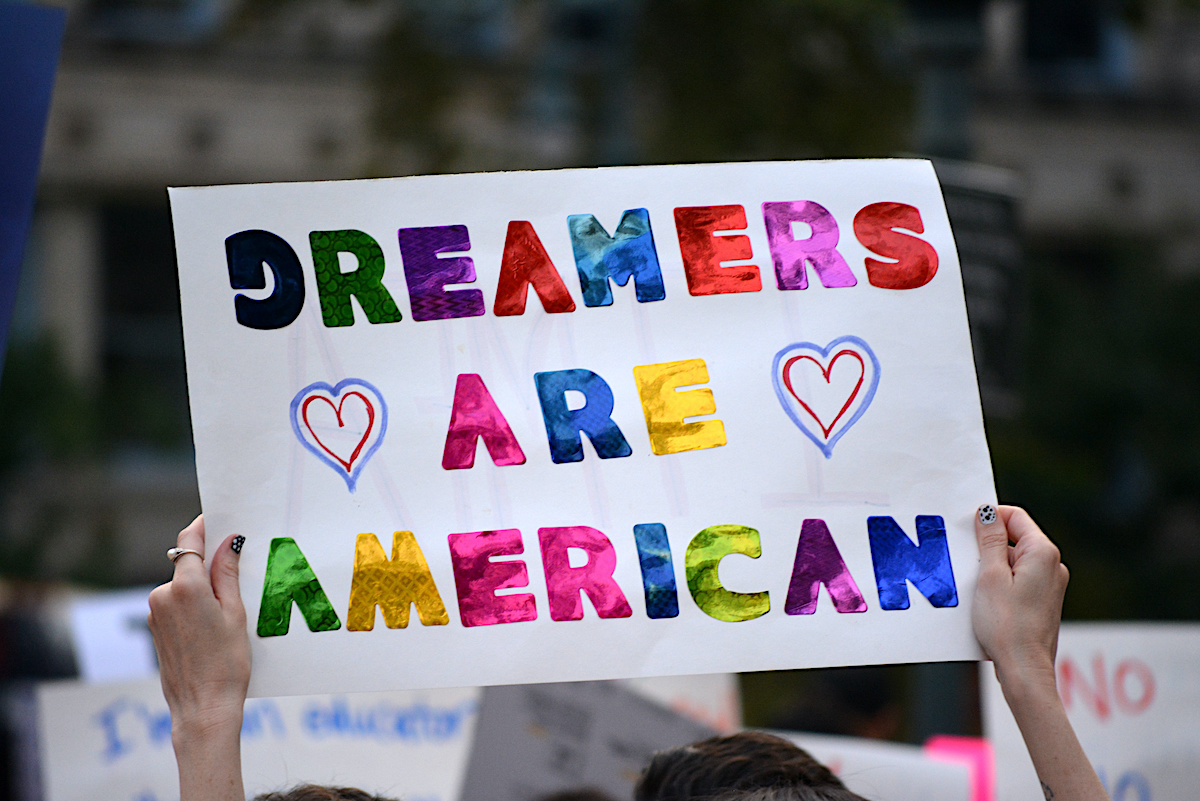
(GA Recorder) | WASHINGTON — The U.S. House passed two bills Thursday that would grant legal status to broad groups of immigrants living and working in the United States, including a pathway to citizenship for hundreds of thousands of undocumented people brought to the country as children.
The measures mark the first step towards what advocates for immigration reform hope will be a year or two of substantive action on the issue. However, as debate on the House floor on Thursday made clear, the caustic rhetoric surrounding a recent upsurge of young migrants crossing the Southern border shows that chances for bipartisanship are dwindling.
Overall, nine Republicans supported the legislation giving a path to citizenship to immigrants protected under the Deferred Action for Childhood Arrivals program, compared to seven who voted in favor of the measure in 2019. It passed 228-197.
However, rather than reflecting new broad support in the congressional GOP for this policy, the uptick is likely attributable to more Republicans holding swing district seats after sweeping the November elections.
For instance, Florida Reps. María Elvira Salazar and Carlos Gimenez, who beat Democrats Donna Shalala and Debbie Mucarsel-Powell, respectively, were new lawmakers to vote for the Dreamer bill. So was Rep. David Valadao, a Californian in his fourth term.
Other moderate Republicans supporting the bills included Reps. Mario Diaz-Balart of Florida, Brian Fitzpatrick of Pennsylvania, Mark Amodei of Nevada, and Fred Upton of Michigan.
After casting her vote, Salazar told reporters that she thought the bill was little more than a partisan gimmick but wanted to show Democrats a gesture of good faith because she has a competing bill in the works that would pair a pathway to citizenship with more border security.
“I want to send the right message to the Democrats that I’m willing to work with them,” she said. “Let’s see if now they’re going to work with us, so they will not say that the Republicans are the racists, or the Republicans are the uncompassionate ones.”
Democrats said the legislation is a moral imperative. House Majority Leader Steny Hoyer, a Maryland Democrat, said during debate on the bills that immigrants with temporary status and others living in the shadows, including Dreamers and farmworkers, deserve relief.
“Immigrants are a reason why America became the world’s most powerful and most prosperous country,” he said. “This legislation today is a major achievement and will hasten the moment when 3 to 4 million immigrants and their families can breathe a little easier, a little freer, knowing that they are welcomed and valued here in America, that they are truly a part of our country.”
Others centered the issue as a matter of local importance. For instance, U.S. Rep. Greg Stanton, a Democrat, said he voted “Yes” for the roughly 24,000 Dreamers in his home state of Arizona, many of whom work as essential employees, doing everything from stocking grocery shelves to practicing medicine.
“We are telling Dreamers all over our country, ‘We see you. we hear you. and we know your home is here in the United States of America,’” he said. “Dreamers are essential to rebuilding our economy, and it’s long past time we put them on a path to citizenship.”
However, predicting a tougher road for the legislation in the U.S. Senate, Republicans by and large opposed both measures, citing the familiar objections to “amnesty” for people who came here without prior authorization, especially in the wake of an unfolding overwhelming situation of increased migration at the Southern border.
“On the heels of this border crisis that is going on right now, there’s a bill on the House floor to create amnesty, to create a bigger magnet, saying, ‘Come to the Southern border,’” House Minority Whip Steve Scalise, (R-La.), said on the House floor.
Other hard-right Republicans objected to specific items in the bills. For instance, Rep. Jim Jordan, an Ohio Republican who was managing floor debate on the Dreamer bill, objected to a section that would create a grant program to fund nonprofit organizations that help immigrants through the application process.
“This bill gives amnesty to 3 million illegals and uses American tax dollars to help those same illegals apply for the amnesty,” Jordan said. “The disrespect that the Democrats have for the American taxpayer, it’s astounding to me.”
House members later Thursday night, on a 247-174 vote, passed a bill to give legal status to undocumented agricultural workers. Thirty Republicans backed that legislation.
One Republican member who voted for a similar bill in 2019, Rep. Mike Simpson of Idaho, laced into members of his own party on the House floor for tying the issue to the current migrant situation.
“This bill is not about what is happening on the border, but that seems to be what all the debate is about,” he said. “This bill is not amnesty; it does not grant anybody amnesty. It allows individuals to get right with the law and to become part of the legal workforce in the United States. It’s about providing a stable legal workforce for the people who put food on our tables.”
A senior White House official told reporters Thursday they are indeed seeing an increase in unaccompanied children coming across the border — 29,000 so far this fiscal year, in fact — but said the administration is trying to clean up the mess left by the Trump administration and would be happy to work with Republicans on doing so.
The Biden administration released statements earlier in the day supporting House passage of both bills and noting they want Congress to take up broader immigration reform, like the U.S. Citizenship Act. Based on Biden’s policy outline, that bill would pair these measures with broader efforts to give legal status to millions more immigrants, as well as some border security legislation and aid to Latin American countries to address what the White House sees as root causes of northbound migration.
U.S. Sen. Bob Menendez (D-N.J.), a New Jersey Democrat who is carrying that bill in the U.S. Senate, told reporters Thursday that he appreciates the House is moving the conversation along but wants to include these pieces of legislation in a larger conversation about broad, bipartisan immigration reform.






